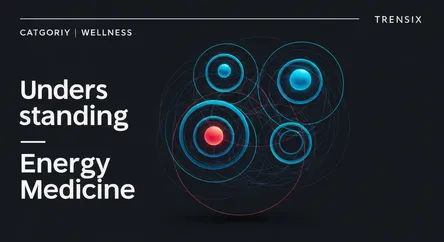Wellness
Understanding Energy Medicine

An introduction to energy medicine, a holistic approach focused on balancing the body's subtle energies to promote wellness and reduce stress.
What is it?
Energy medicine is a branch of complementary and alternative medicine based on the belief that a subtle life force energy flows through the human body. Proponents suggest that imbalances or blockages in this "energy field" can lead to physical or emotional ailments. The goal of energy medicine is to restore this balance and promote the body's natural healing abilities. It encompasses a wide range of practices, including Reiki, acupuncture, Qigong, and Therapeutic Touch, which can be hands-on, hands-off, or even performed from a distance. Practitioners work to channel and manipulate these energies to clear blockages and support overall health.
Why is it trending?
Interest in energy medicine is rising as more people seek holistic, integrative approaches to health that address the mind, body, and spirit. In our increasingly fast-paced world, many are turning to these ancient practices for stress reduction and self-care. The digital age has made practitioners more visible and accessible than ever before. Furthermore, there is a growing desire for non-invasive therapies that can be used alongside conventional medical treatments to support well-being. This trend is also fueled by ongoing research exploring the mind-body connection and the potential benefits of these modalities.
How does it affect people?
People often turn to energy medicine to manage stress, anxiety, depression, and pain. The primary effect reported is a deep sense of relaxation and an improved feeling of well-being. Some studies and anecdotal evidence suggest it may also improve sleep quality, aid recovery, and help heal emotional trauma. During a session, individuals might feel various physical sensations or experience emotional releases as their energy rebalances. While generally considered safe, it is viewed as a complementary therapy meant to support, not replace, conventional medical care.